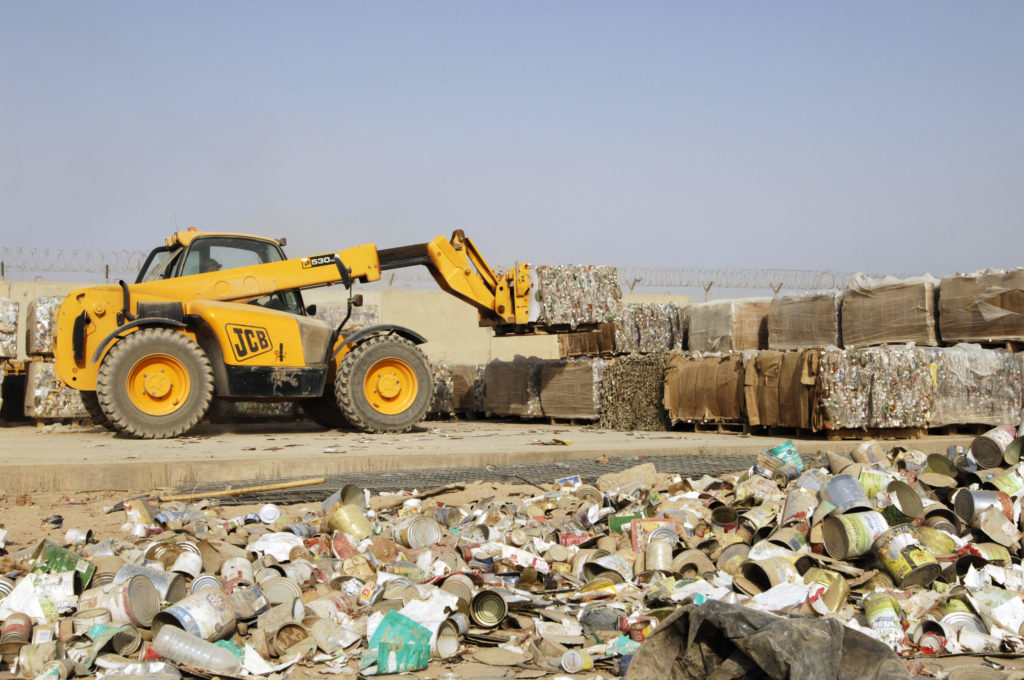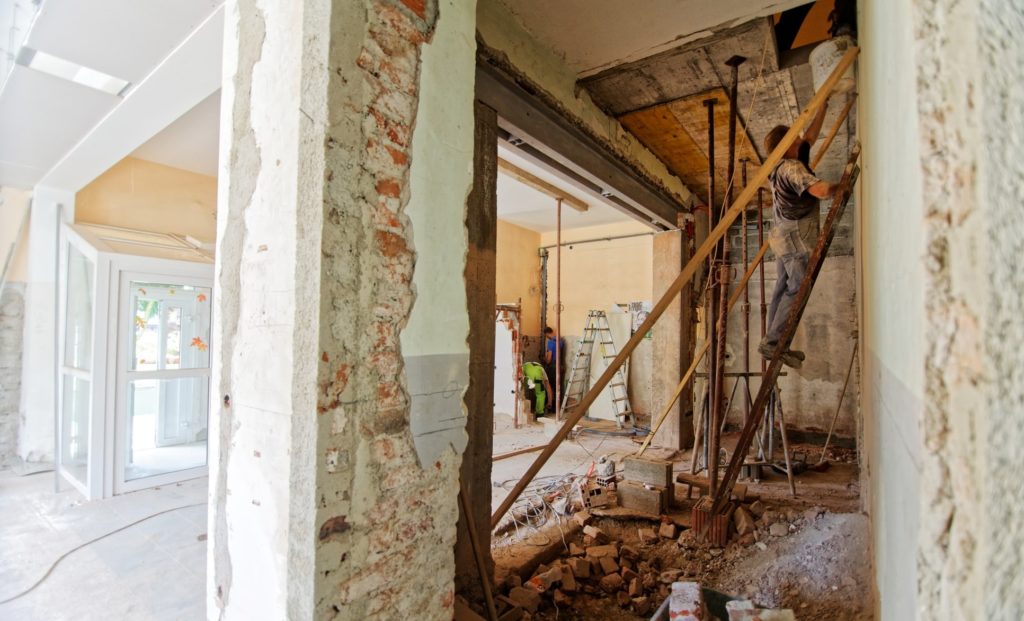While businesses' health and safety efforts have been dominated by COVID-19 in recent weeks, March 2020 also saw a number of unrelated fines handed to employers who fell short in their health and safety duties.
Here are five recent examples that illustrate the importance of robust risk control measures.

1. Metal fabricator fined after girl crushed by sliding school gate
A manufacturer of bespoke metal gates was fined almost £20,000 this month after a girl was injured when a school gate fell on her. The eight-year-old was leaving an evening class when the manual sliding gate came off its rollers and crushed her.
The court heard that the fabrication company had designed, manufactured and installed the 1.7-metre-high gate. An investigation by the Health and Safety Executive (HSE) found that the stop mechanism to prevent the gate from overrunning its rollers was “an accident waiting to happen”. At the time of the incident, it was “robustly” opened. The momentum caused the gate to “ride over” the stop such that there was nothing holding it in position.
Metalart Fabrication Ltd admitted to breaching the Health and Safety at Work etc Act 1974. The Act places a duty on anyone designing, manufacturing or supplying an article for use at work to ensure, so far as is “reasonably practicable”, that the article is designed and constructed safely and without risk to health when used.
The company was fined £19,327 with full costs of £1,147.
The HSE said: “The failure to fit suitable end-stops meant that the gate was an accident waiting to happen and could have fallen on anyone at any time with life threatening consequences”.
2. Australian-themed bar chain fined following lift death
Pub and restaurant chain Walkabout received a substantial fine for safety failures after an employee tragically died in a lift incident.
The pub worker was transporting several heavy chairs in a goods lift. In order to get all the chairs into the elevator, he had overridden a safety mechanism on the inner door, something other staff also occasionally did. This meant the safety gate could not be closed. As the lift went up, an upturned chair leg became caught on the ceiling of the above floor, causing the furniture to shift. In the movement, the worker was crushed against the inside of the lift cage.

HSE investigators found that the lift had missed six-monthly examinations and was in “poor condition”. The last thorough examination had taken place two and a half years before the incident. Investigators said the lift should not have been used until it had been examined and certified. The court also heard that the pub’s lifts had been reported as faulty 37 times before the tragedy.
Walkabout operators Intertain Ltd, now owned by Stonegate Pub Company Ltd, pleaded guilty to breaching the Lifting Operations and Lifting Equipment Regulations 1998 and Management of Health and Safety at Work Regulations 1999.
The company was fined a total of £48,000 and ordered to pay more than £15,000 in prosecution costs.
3. Furniture firm fined over poor warehouse safety
A furniture firm was fined almost £400,000 for failing to protect its employees from hazardous and explosive conditions at warehouse premises. The council bringing the prosecution said it hoped the heavy fine would serve as a reminder to businesses of the need to have employees’ health and safety at the forefront of their minds.
The council launched an investigation after a complaint from a member of staff. Investigators discovered that the warehouse was being used to prepare sheets of room dividers. However, this was not a registered warehouse activity, and the glues being used and a lack of ventilation meant that the sheets were prepared in a highly explosive environment. Workers were also given faulty face masks, exposing them to cancer-causing MDF wood dust. The conditions were so bad that council officers served an immediate prohibition notice stopping the activity.
The company had failed to assess the risks to employees from areas where dangerous substances were used, namely solvent thinners, solvent lacquers, wood dust and combustibles. It also failed to classify areas where an explosive atmosphere might build up.
JB Global, parent company of Oak Furnitureland, pleaded guilty to breaches of the Dangerous Substances and Explosive Atmosphere Regulations (DSEAR) 2002 and Control of Substances Hazardous to Health (COSHH) Regulations 2002.
The company was fined £398,000 and ordered to pay the council’s costs of £94,409.
Reacting to the sentence, the council said: “This prosecution and subsequent penalty highlights the importance of taking steps to protect the health and safety of employees and members of the public. The uncontrolled work activities being carried out at the warehouse posed a very real risk of explosion, fire and potential long-term health conditions resulting from exposure to carcinogenic MDF dust and harmful chemicals”.
It added: “We take breaches of health and safety laws extremely seriously and I would like to praise the diligence of our health compliance team for carrying out this complex investigation and highlighting this extremely bad practice”.
4. Waste firm fined after vehicle crushes banksman
A waste management firm was handed a six-figure fine after a recycling site worker was run over by a 22.5-tonne wheeled loader.
The employee was crushed by a reversing shovel loader driven by an on-site contractor. The employee was acting as a banksman, helping a lorry move into a bay, when the loader independently reversed out of the bay, knocking him to the ground.
An investigation by the HSE determined that the firm had failed to organise the workplace so that pedestrians and vehicles could move around safely.

Viridor Waste Management Limited pleaded guilty to breaching the Workplace (Health, Safety and Welfare) Regulations 1992 and causing “life-changing injury” to one of its employees. It was fined £400,000.
The HSE said: “This incident is a reminder to the waste and recycling industry as to the importance of good workplace transport control which can often be achieved by simple pragmatic steps to avoid such incidents from occurring. HSE will not hesitate to take appropriate enforcement action against those that fall below the required standards”.
5. Three fined over fire risk failures
Three companies were fined for their part in failing to take adequate precautions against fire risk when building a timber frame extension to a residential home.
The principal contractor E Manton Limited, plus timber frame designer, manufacturer and installer MTE (Leicester) Limited and principal designer Thornton Firkin LLP were working on the project. The timber frame extension to occupied sheltered accommodation was installed without putting adequate fire prevention controls in place.
HSE investigators uncovered that the companies had failed to plan, manage and monitor the work in a way that prevented risks from fire and protected people who may be affected by the project.
The regulator said that the risks should have been prevented by designing out the major fire risks and putting measures in place to minimise the remaining residual fire risk during the project.

E Manton Ltd pleaded guilty to breaching the Health and Safety at Work etc Act 1974. It was fined £26,000 and ordered to pay costs of £6,944.
MTE (Leicester) Ltd pleaded guilty to breaching the Health and Safety at Work etc Act 1974. It was fined £20,000 and ordered to pay costs of £6,413.
Thornton Firkin LLP also pleaded guilty to breaching the Health and Safety at Work etc Act 1974. It was fined £8,000 and ordered to pay costs of £7,133.
The HSE said: “These cases highlight the need for all duty-holders to take proactive action to ensure they are not putting workers and others at risk from foreseeable fire risks by taking reasonably practicable actions, in accordance with industry standards, to comply with their duties under the respective regulations. Fire kills and members of the public have a right to be protected”.
Safeguard your staff and your business now
Financial penalties for breaching health and safety law are unlimited, meaning inaction or oversight could have catastrophic effect for all involved. With this in mind, the right support can make all the difference.
If you would like to take steps to proactively reduce risk across your organisation, Ellis Whittam’s experienced Health & Safety Consultants can help to reduce the threat of prosecution by c.50% and cut the cost of any fine imposed by more than 85%.
To discuss your needs and enquire about dedicated, fixed-fee support for your organisation, call 0345 226 8393 or request your free consultation using the button below.
